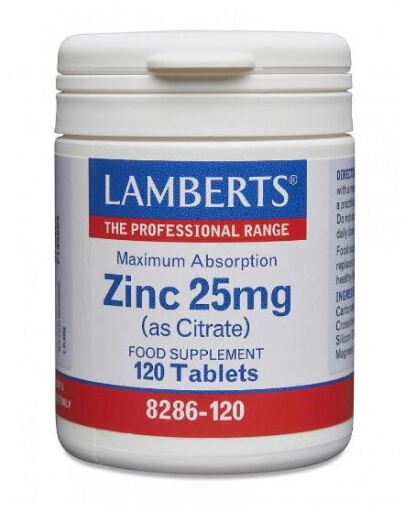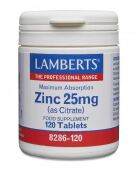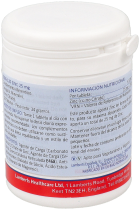


Refining grains removes up to 90% of the zinc content available in these foods.
This fact, along with the trend toward eating less animal protein, is possibly one of the reasons why one in three British adults consumes less than the Reference Nutrient Intake (RNI) for this mineral.
Zinc is an integral part of insulin, the hormone used in the treatment of diabetes, and is essential in the synthesis of all proteins in the body.
Any extraordinary physical or mental effort of the body can increase zinc requirements or cause additional zinc loss, while foods rich in phytates and fiber inhibit the absorption of zinc present in food.
One-fifth of the zinc present in the body is found in the skin.
Zinc 25 mg should be used as a short-term supplement to correct deficiencies quickly.
For maintenance it is recommended to use 15 mg Zinc.
Zinc contributes to:
Normal acid-base balance and normal carbohydrate metabolism.
Normal cognitive function and DNA synthesis.
. To the normal functioning of fertility and reproduction.
Normal metabolism of macronutrients, fatty acids, and vitamin A.
Normal functioning of the immune system, protection of cells from oxidative damage and the process of cell division.
Maintaining normal vision, bones, skin, hair, and nails.
These tablets are manufactured in the UK under strict GMP pharmaceutical manufacturing standards.
